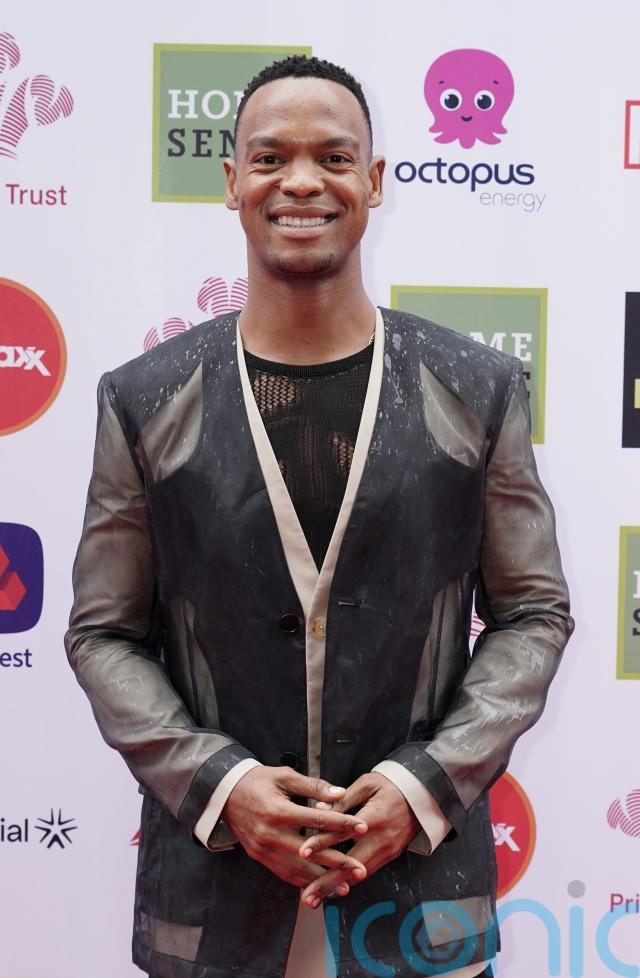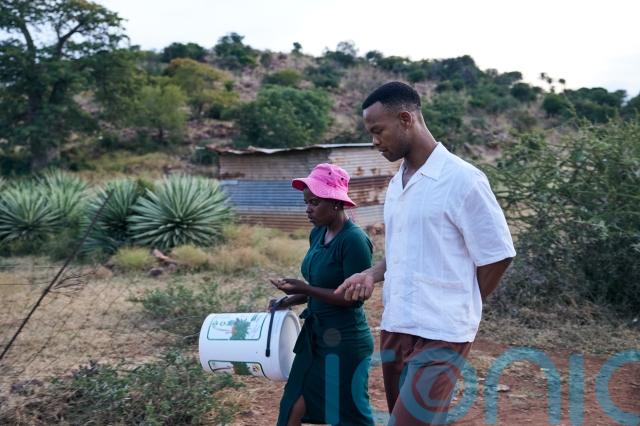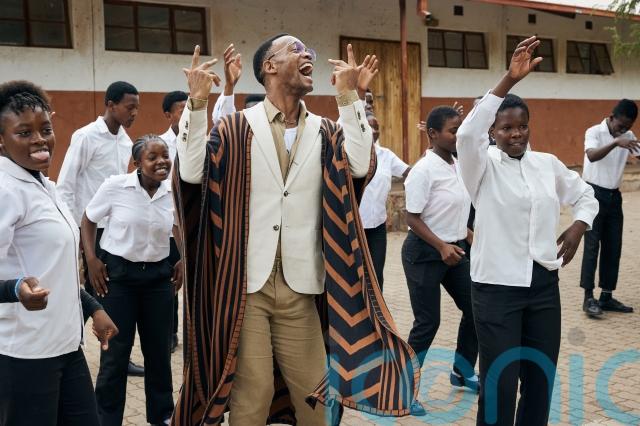
Strictly Come Dancing’s Johannes Radebe says he shied away from being his true self “for the longest time” but moving to the UK where dancing is “deemed cool and respected” changed that.
The South African is arguably the show’s biggest professional star – known for his joyful, vivacious personality as much as his moves, since joining the cast in 2018.
Radebe reached the final in 2021 in a same-sex partnership on the hit BBC One programme with John Waite, and has been partnered with celebrities Montell Douglas, Ellie Taylor and Caroline Quentin.
“For the longest of time, I’ve shied away from [what’s] innately me. I’ve always kept it away from the world. I didn’t want the world to see it, because I didn’t want to be teased,” says the 38-year-old, who grew up experiencing homophobic bullying. “But now I’m like, Oh honey, come in! Come watch the show!

“Since I came to this country, I realised the impact of dancing and how far and wide it reached and how dancing was deemed cool and respected, it gave me a sense of belonging.
“It affirmed me to say what I’ve been doing all these years has been correct, because there’s a nation that will applaud and enjoy and be fulfilled by what you do,” says the dancer and choreographer, who is currently starring in the musical Kinky Boots and touring the UK.
Hailing from the town of Zamdela, Sasolburg, “I didn’t grow up with lots of money,” Radebe says, “I quickly realised that we didn’t have much at home as soon as I took on dancing, when it involved travel costs and all those fees. That’s when my family sat me down and said, ‘It’s either you go and dance and we don’t eat, kind of thing’.
“A lot of African talent was discouraged by that – that’s why you don’t see many of us around.”
He says his success (he was two-time Professional South African Latin Champion and three-time South African Amateur Latin Champion before becoming a household name in the UK) is down to hard work, timing and other people.
“I didn’t get here by myself,” he says, humbly. “Everybody’s talented where I come from, there’s better dancers than me! They were never afforded the opportunity. It’s a real struggle.”
It was the community that rallied around Radebe and his family to pay to attend big dance championships when he was as young as seven. “Everyone was involved, contributing five rand [20p], 10 rand [40p], whatever they had. People cooked, they were like, ‘We’ll make food for him [to take]’.”
Living relatively close to a metropolitan city meant the family did have running water though, something he discovered lots of South African communities don’t have, while on a trip to a community in the province of Limpopo alongside WaterAid, in support of the charity’s Water Can’t Wait campaign.
Almost one in ten people don’t have access to clean water close to home, the charity says, who are calling on governments attending COP30 to tackle the water and climate crisis.

“It was really emotional, and humbling,” says Radebe of the experience, where he met one woman, California Ramathemela, who spent 11 hours fetching water from the top of mountain each day, before new water sources were installed. “People have been injured while getting water, it’s not the cleanest, if you have to cook, bathe and drink [it]. At some points I felt sad, and you just feel guilty.”
Typically it’s women and girls who have to collect water, often from unclean sources miles away, and it’s something he remembers his own mother talking about doing as a “really, really young” child.
“These kids wake up at three, four in the morning to go collect water, to be at school at 6am. And then when they get home, there is no water, so they ditch their homework, they run to the river, some to relieve their mothers, so that their mothers can look after the household.”
Radebe also visited the George Mbulaheni Secondary School where students were often sent home because there was previously not enough water. “It meant so many kids were late for their classes because of the queues at the toilets,” he says.
“What really disturbed me, and what I feel always keeps an African child behind – so many things do – I always felt like we weren’t dealt the right hand, but this basic need not being there.”
Thankfully, that’s changed now, with six additional water points at the school. “WaterAid has built toilets for them and built water tanks, there are sinks, there’s soap. It affords you the dignity to go to the loo and close the door, they never had doors on their toilets.”

Despite the hardship he witnessed, Radebe says there was also so much happiness present. “Those kids might not have much, but the one thing that they do have in their hearts is joy.
“That’s the thing about South Africa, dance is in the forefront of everything. Whether we are sad, whether we are happy, that’s what we do. And I was reminded of that when I got there – we danced our hearts out, it’s on the spot, improv and you look around and it’s just kids. [I thought] If this is how you guys approach life then you’re all set.
“They’ve got joy, they’ve got energy and they’ve got lust for life, but actually they need the basics in which to achieve.”
Dancing as a child and teenager gave Radebe a “refuge from the world” when he was teased and targeted. “I could go and hide at dance practice and by the time I came out it was dark and I’m with my friends so there was no fear of being bullied like every time I was by myself in the middle of the streets. It didn’t help that I was a happy and flamboyant boy. I would be called names.”
The dancing community afforded him “friendships and protection”, he says. “There was no other place in my township to go – it allowed me to really express myself, and that’s why I stuck with it.
“When I travelled outside my township for the first time and met other people that loved the same thing, that were as expressive as me, there was no judgement, there was no name calling – I was like, this is my haven.”
It seems fitting that he’s now making his musical theatre debut in the new production of Kinky Boots – the storyline itself is of inclusivity and acceptance.
He plays a drag queen in a story about a man who inherits his father’s shoe factory and forms a partnership with Radebe’s character, Lola, to produce high heels for drag artists, in order to save the business. But it took him a while to say yes to the part.
“I really wanted to make sure I was not just another celebrity casting putting bums on seats. I hate it, because I do believe there’s people in the wings waiting for that opportunity who have studied and dedicated their lives to this art form. So for me to just waltz into this world and think that I can just because I’ve seen it happen? I didn’t want to be part of the statistics.”
So he undertook singing and acting lessons – “More than anything, it was the confidence that I needed… Somebody’s going to have to rip me off the stage, because I absolutely love it.”
“It’s a show about acceptance of one and others,” says Radebe, who is due to make his West End debut for the show at the London Coliseum in March 2026.
“I think people walk away from it with utter joy and healing, because that’s what it does for me every single night.
“Minds are being changed – it’s beautiful to see.”
Johannes Radebe is supporting WaterAid’s Water Can’t Wait campaign calling for action on the water and climate crisis. Find out more: wateraid.org.
Subscribe or register today to discover more from DonegalLive.ie
Buy the e-paper of the Donegal Democrat, Donegal People's Press, Donegal Post and Inish Times here for instant access to Donegal's premier news titles.
Keep up with the latest news from Donegal with our daily newsletter featuring the most important stories of the day delivered to your inbox every evening at 5pm.